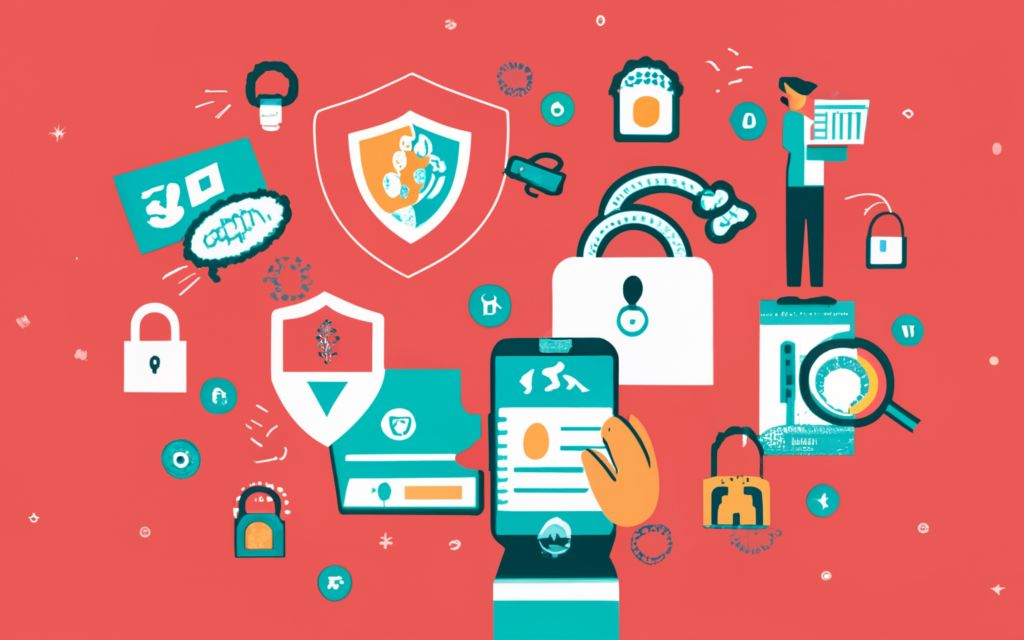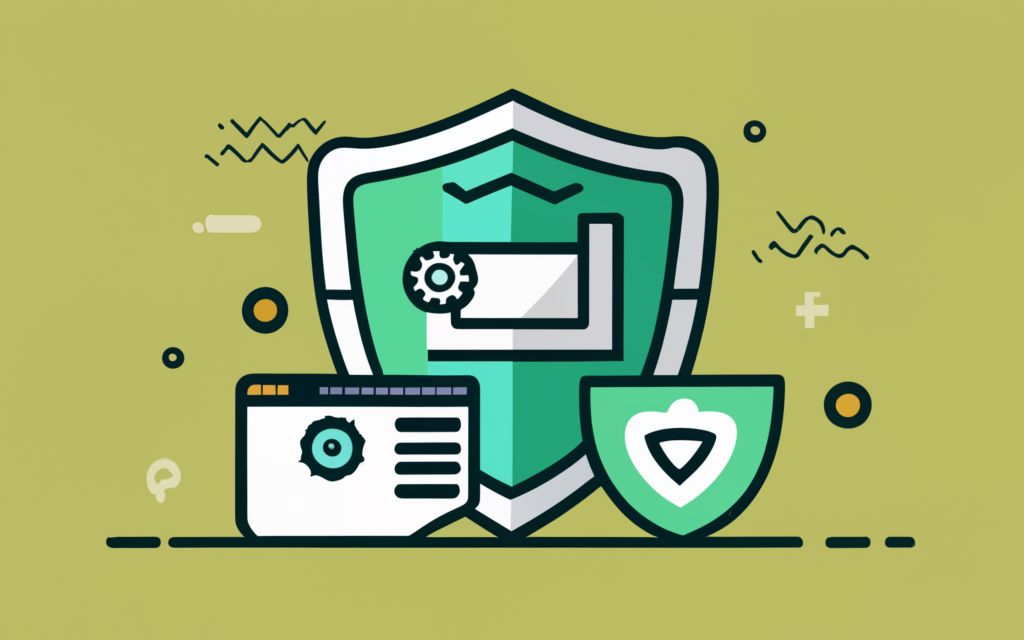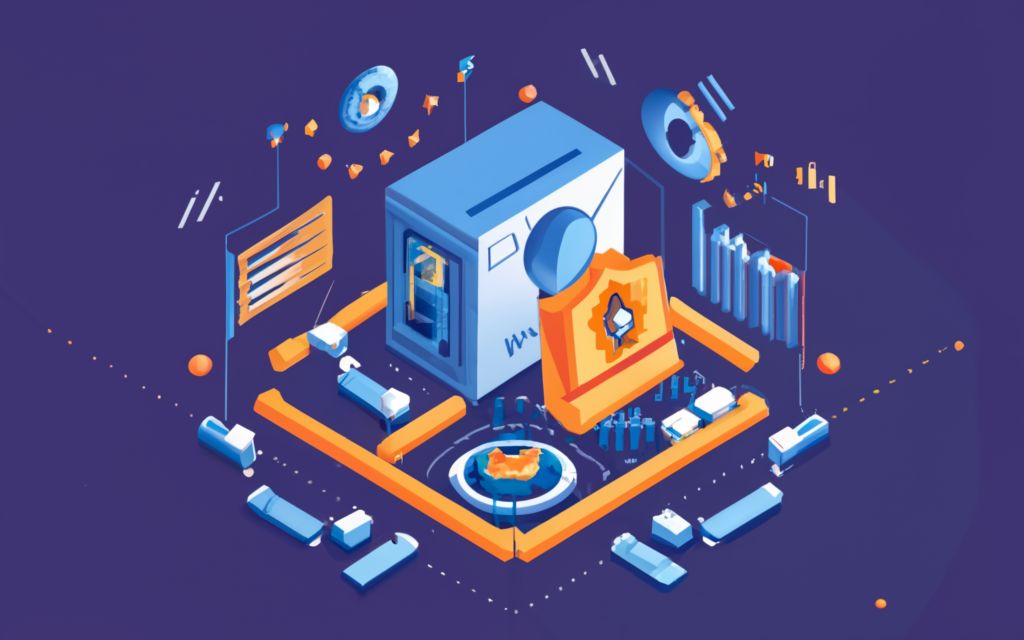Establishing a Secure Authentication Ecosystem
In today’s threat landscape, multifaceted verification is imperative for safeguarding sensitive systems and data. As indicated by our analysis, plain password-based access controls alone cannot protect against intrusion anymore. Multi-factor authentication (MFA) methods that demand additional credentials have emerged as indispensable tools for identity and access verification.
Specifically, MFA tokens that generate dynamic secondary codes for each user session are strengthening security ecosystems. By requiring knowledge of both static account passwords and rotating token passcodes, organizations establish robust protection not reliant on any singular factor vulnerable to exploitation.
From our experience, these layered defenses effectively shield networks, applications, online accounts and more from infiltration by external attackers and malicious insiders. MFA tokens reinforce identification processes to allow only legitimate users in while keeping data breaches at bay.
The Future of MFA Token Security
Biometric MFA Tokens: Multimodal Biometric Integration Our research indicates a key evolution will be blending multiple biometrics into unified MFA platforms, allowing users to confirm identities via fingerprints, facial recognition, iris scans and more for authenticated access.
Liveness Detection Advances: As per our analysis, incorporating liveness detection to validate biometric samples come from live subjects not recordings will be crucial to counter spoof attempts targeting fingerprint and facial authentication methods.
Passwordless Workflows: We expect seamless biometric-powered passwordless workflows to gain traction once concerns around liveness protections subside to offer both security and convenience.
Decentralized MFA Tokens:User-Owned Identity Management According to our findings, blockchain self-sovereign identity models will enable portable user-owned credentials across domains instead of fragmented identity stores spread across organizations.
Integrated Confirmations: Decentralized protocols can directly integrate permissioned blockchain transactions for access requests with multi-factor authentication natively in smart contract logic flows for system interactions.
BYOI: Bring Your Own Identity We foresee a shift towards user BYOI enrollment for workforce access schemes, with employees registering personal biometric authenticators or other MFA factors once with decentralized identity providers.
Intelligent Adaptive Tokens
Contextual Risk Scoring:Our research shows artificial intelligence will power real-time risk scoring of access attempts by evaluating IP addresses, locations, device fingerprinting and behavioral patterns to gauge trust and step up MFA challenges accordingly.
True Passwordless Security:Intelligent adaptive systems will confirm user identities initially via tokens then allow entirely passwordless access subsequently for low risk authentication events, promoting security through improved experience.
MFA Orchestration Integration: As threats advance, we expect integration of intelligent MFA technologies with identity orchestration platforms to coordinate responses across hybrid environments both on-premises and in multi-cloud deployments.
Optimizing User Experience
While MFA tokens provide unparalleled protection, balancing convenience and accessibility is equally vital for workforce adoption. As such, leading solutions focus on streamlined user experiences:
As indicated by our findings, push notification MFA enables secure, instant verification directly on users’ mobile devices without reliance on SMS channels.
Our research also revealed innovations like single tap confirmations, biometrics integration, loose token coupling and partially offline modes enhance usability while upholding security.
Overall, centering solutions around user self-service and frictionless interfaces ensures productivity amidst stringent access controls to meet both experience and protection mandates.
Meeting Industry-Specific Security Demands
Diverse public and private sector organizations leverage customizable MFA tokens aligning with their distinct threats and obligations:
Financial Services: Tokenization protects online banking, wire transfers and ATM withdrawals using mobile or hardware tokens to combat transaction fraud.
Healthcare: Software and SMS tokens enable secure electronic health record access for hospital staff while adhering to patient privacy regulations.
Government: Adaptive multi-factor authentication integrates with agency identity management to authenticate personnel based on access risk profiles across devices and global locations.
Supporting Global Compliance
For worldwide operations, MFA tokens help multinational organizations address expanding cross-border compliance requirements:
Data Protection Standards: Tokenization assists data controllers and processors in fulfilling expanded due diligence mandates within regulations like GDPR when processing EU citizen information.
Industry Security Regulations: Software tokens that generate detailed authenticator activity logs provide audit trails often required for adherence to frameworks such as PCI DSS.
Continuous Compliance Monitoring: Orchestration platforms unify tokenization to systematically monitor and demonstrate compliance while optimizing usability.
The Threat Landscape Intensifies
Sophisticated threat actors ranging from cyber criminals to state-sponsored hackers relentlessly target sensitive business systems and data. Phishing, malware and social engineering continue evolving to evade traditional controls. Insider risks also keep escalating across global, mobile workforces accessing cloud platforms.
Vulnerabilities Further Magnified
Mobility and BYOD environments bring added risks of lost or stolen devices outside corporate walls. Cloud migrations reduce visibility, and hybrid platforms enlarge attack surfaces with more endpoints exposed across on-premises and multi-cloud footprints. APIs also increase connections making organizations more porous to intrusions.
Legacy Passwords Cannot Withstand Onslaught
Aging perimeter defenses centered on basic passwords fail to combat modern identity-targeted attacks, unauthorized internal access and credential theft enabling lateral movement. Isolated passwords inherently possess static, duplicable qualities enemies exploit through stolen hashes, brute force, password spraying and credential stuffing attacks.
MFA Tokens Counter Escalated Risks
MFA tokens dynamically confirm user identities through knowledge of a secondary, single-use code scientifically generated via proven cryptographic methods. Binding additional authentication factors to accounts fortifies access controls.
Even if threat actors compromise standard passwords, lacking accompanying MFA credentials prevents actual system or data access. This added verification layer shields organizations across modern complex environments.
Central Pillar of Robust Defenses
Facing amplification of risks, global enterprises must architect resilient controls safeguarding identities, systems and information. MFA tokens anchor expansive, adaptable cybersecurity strategies accounting for mobility, cloud and the disappearance of the corporate perimeter.
By delivering critical secondary credentials, tokens enable identity assurance and access management – the foundation for addressing intensified threats targeting the digital age.
FAQs
What are the main types of MFA token options?
Major types include hardware tokens, software tokens, SMS codes, push notifications, and biometrics like fingerprint authentication. Each carries unique advantages based on use cases.
How do MFA tokens improve security compared to passwords only?
Isolated passwords are prone to phishing and data thefts. MFA tokens require users present a secondary one-time code tied to their account, blocking intruders despite stolen credentials.
What industries commonly leverage MFA tokens?
Financial services, healthcare, retail, government and technology organizations utilize MFA tokens to address fraud risks and data security regulations.
How can MFA tokens help meet global compliance standards?
Tokenization provides digital audit trails often required under international data protection laws. MFA tools also give organizations visibility into access controls crucial for standards adherence.
What emerging MFA capabilities show the most promise?
Biometric authentication, blockchain-based decentralized identity protocols and artificial intelligence-powered adaptive risk scoring for intelligent tokens.


